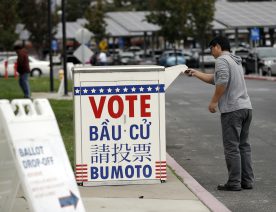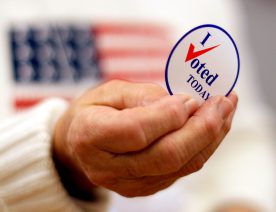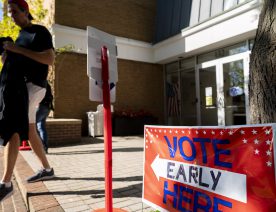
October 28, 2024
As Election Day approaches, many registered voters are quite concerned about the integrity of the vote and what will happen in the aftermath of the election. Nearly a quarter of registered voters expect inaccuracies in the vote counts across the country, and many fear post-election political violence. Half of voters believe a Trump victory would weaken democracy, while opinions are divided on whether a Harris presidency would strengthen or weaken US democracy.
A large majority, 86%, of registered voters believe the losing candidate should accept the election outcome once votes are counted and legal challenges are resolved. Yet, after years of publicly denying that he lost the 2020 election, only 33% expect Trump to accept the result and concede if he loses in 2024. Nearly all Democratic voters and about a third of Republican voters expect Trump will reject the results if he loses. In contrast, 77% of voters expect Kamala Harris to concede if she loses. Only 7% of Democrats and 39% of Republicans believe she would refuse to concede.
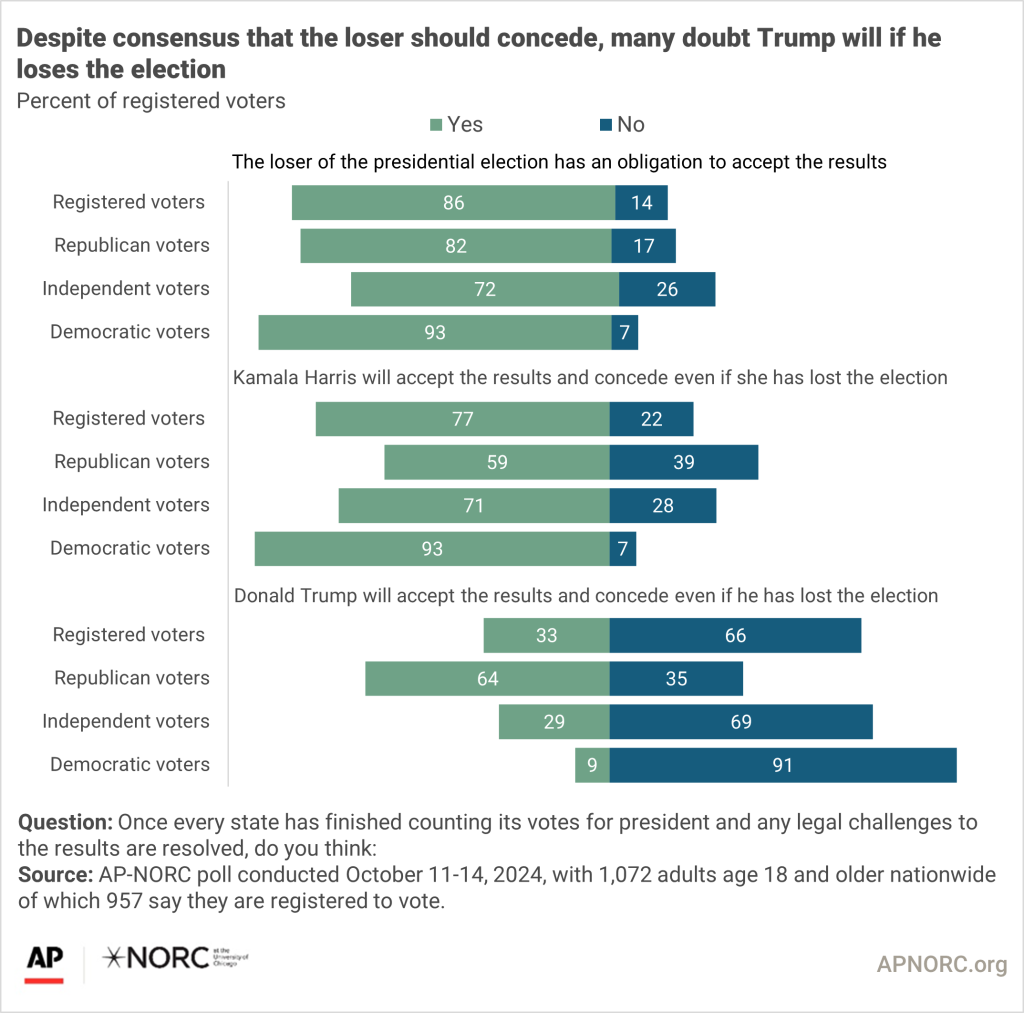
Concerns about election outcomes extend beyond whether candidates will concede. Many are also worried about the impact each candidate’s presidency might have on the health of democracy. About half of registered voters believe that Trump’s election would weaken U.S. democracy, while 39% say it would strengthen it. Views on Harris are more divided: 43% see her election as a threat to democracy, while 44% view it as a benefit.
Partisanship heavily shapes these opinions—Democrats are more likely to see a Harris presidency as strengthening democracy, while Republicans tend to believe the same about a Trump presidency.
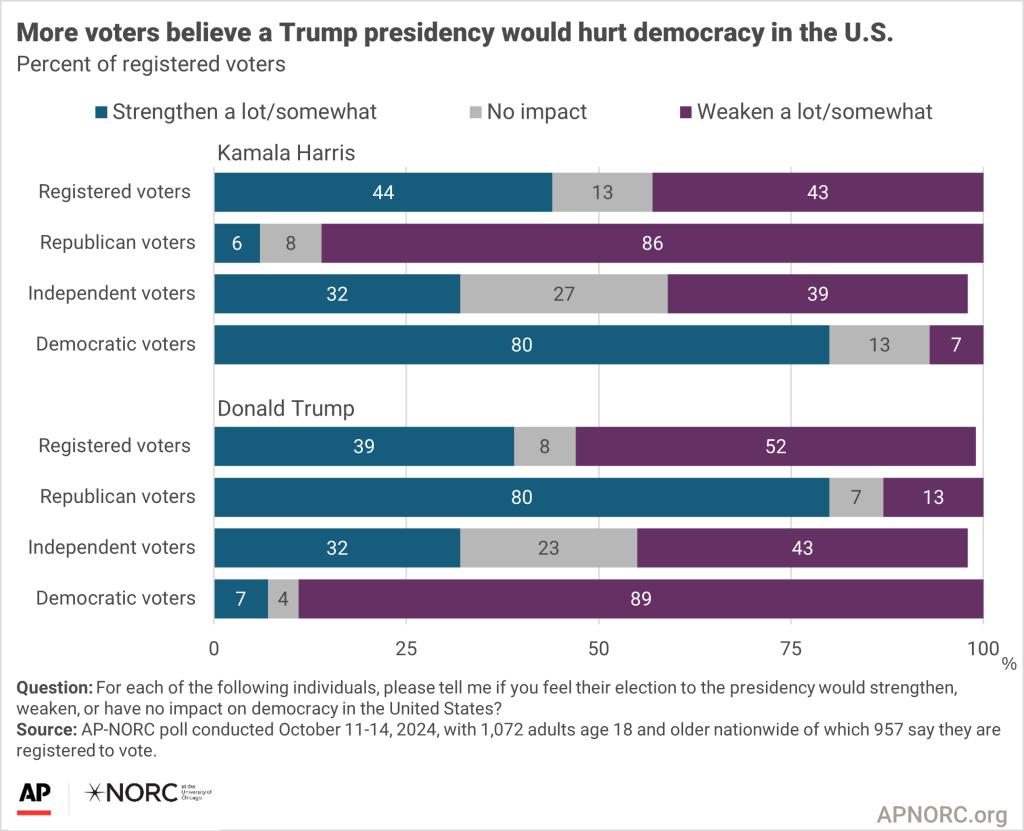
Concerns about post-election violence remain widespread. Seventy-six percent of voters are at least somewhat worried about violence aimed at overturning the election results, including 42% who are extremely or very concerned.
Additionally, 82% of adults express concern about violence targeting political figures or election officials, including 43% who are extremely or very concerned.
Democrats are particularly concerned about the potential for political violence. Just 1 in 10 report they are not very or not all concerned about these outcomes.
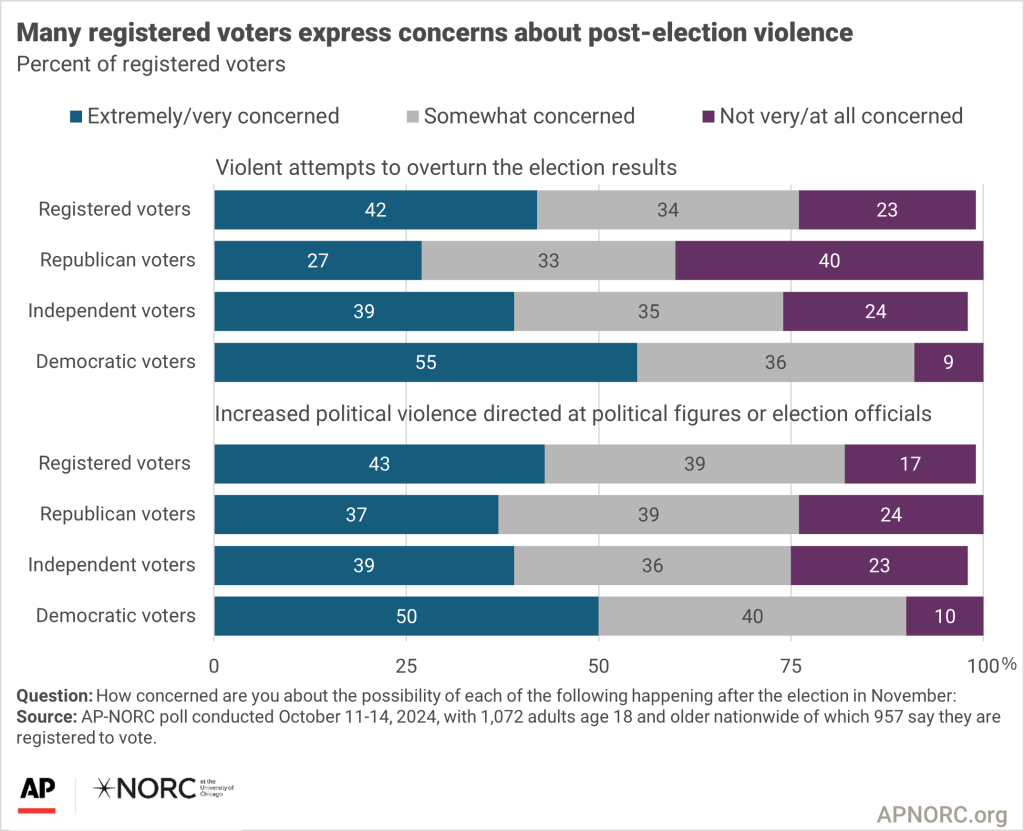
Beyond fears of violence, the public is also uneasy about non-violent efforts to influence election outcomes. Sixty-seven percent of registered voters are at least somewhat concerned that election officials might try to block the certification of results, including a third who are very or extremely concerned. Similarly, 73% worry somewhat about attempts to overturn results using the legal system, including 38% who are very or extremely concerned.
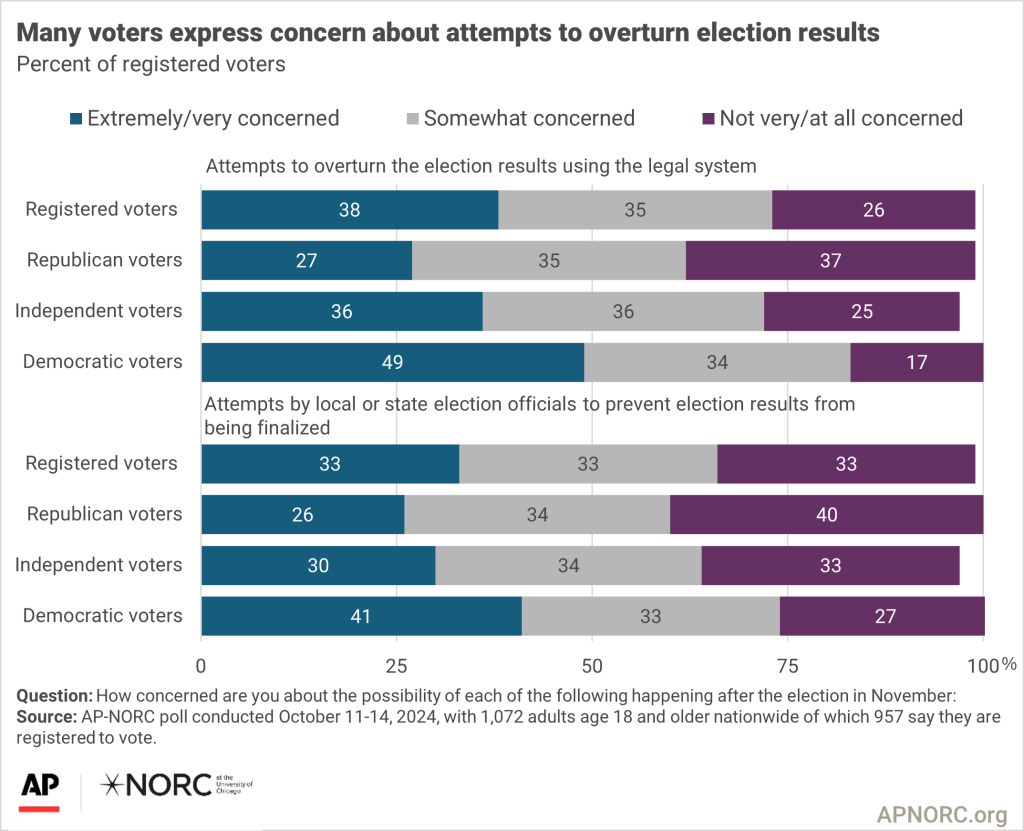
Foreign interference is another significant concern. Some voters are deeply worried about foreign governments influencing U.S. elections by shaping public opinion, swaying candidates themselves, stealing information from political figures or parties, or tampering with voting systems or results.
Democrats are more likely than Republicans to express strong concern over foreign meddling or stolen political information. However, concern over foreign tampering with vote counts is shared by both groups.
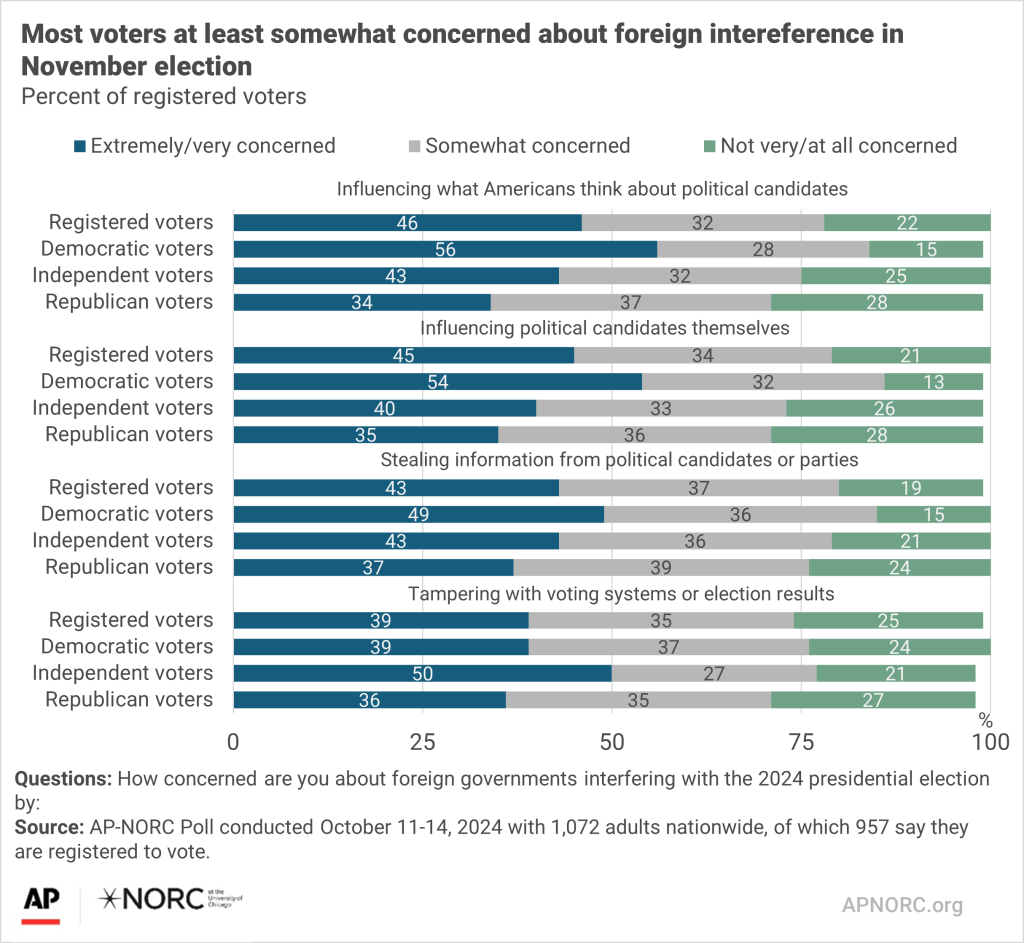
While most voters are confident that votes will be counted accurately nationwide, 26% of registered voters are not. Democrats are more likely than Republicans to trust that votes will be counted accurately nationally. Only 8% of Democratic voters express little or no confidence, compared to 44% of Republicans. Although Republicans are skeptical at the national level, only 17% express similar doubts about their local election officials.
Despite public concerns about election-related activity in 2024, confidence in the legitimacy of the 2020 presidential election is faring better. Currently, 71% of adults believe Joe Biden was legitimately elected, and 66% percent of adults felt that way in 2021. The vast majority of Democrats (95%) and most independents (67%) share this belief. However, Republicans remain divided, with 43% affirming Biden’s legitimate victory and 56% rejecting it.
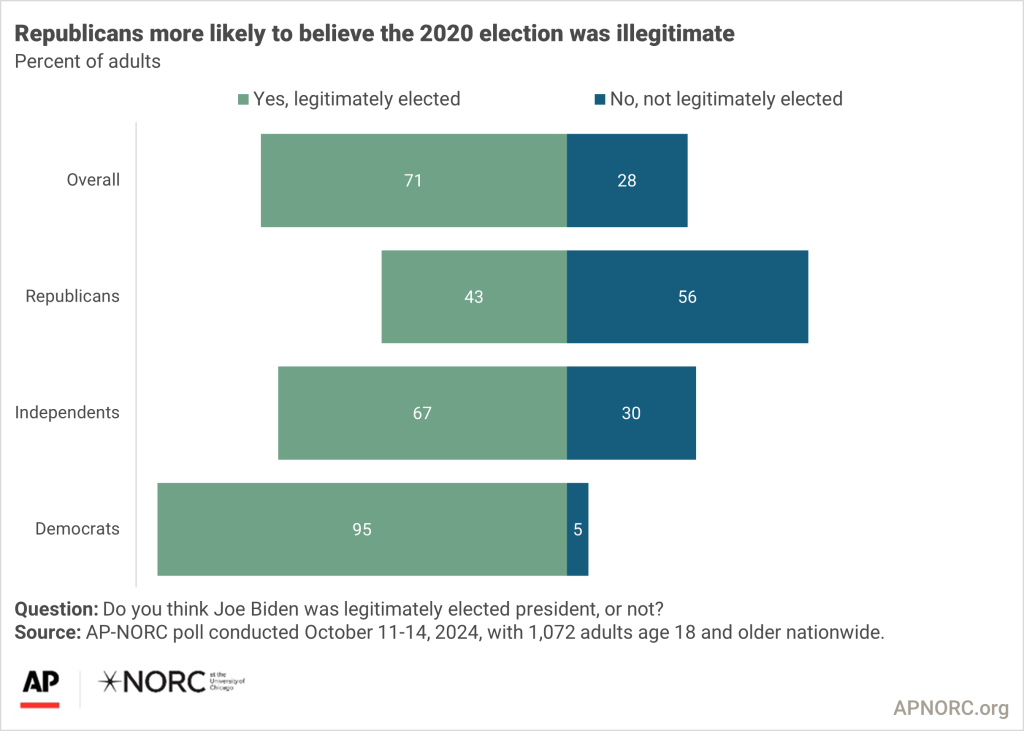
Republican skepticism surrounding the 2020 election ultimately led a group of Trump’s supporters to breach the Capitol on January 6th, 2021. About half of registered voters (54%) assign “a great deal” or “quite a bit” of responsibility for January 6th to Trump, but far more, (75%), hold the individuals involved as accountable.
• Suggested Citation: AP-NORC Center for Public Affairs Research. (October, 2024). “Many voters are worried about the electoral process and transition of power” https://apnorc.org/projects/many-voters-are-worried-about-the-electoral-process-and-transition-of-power/




